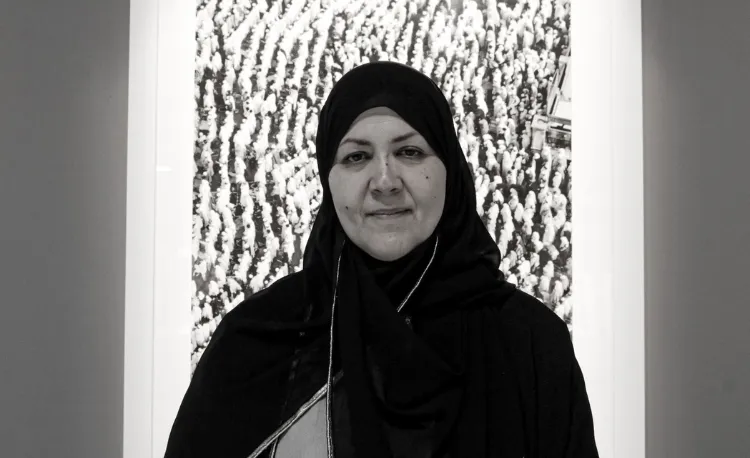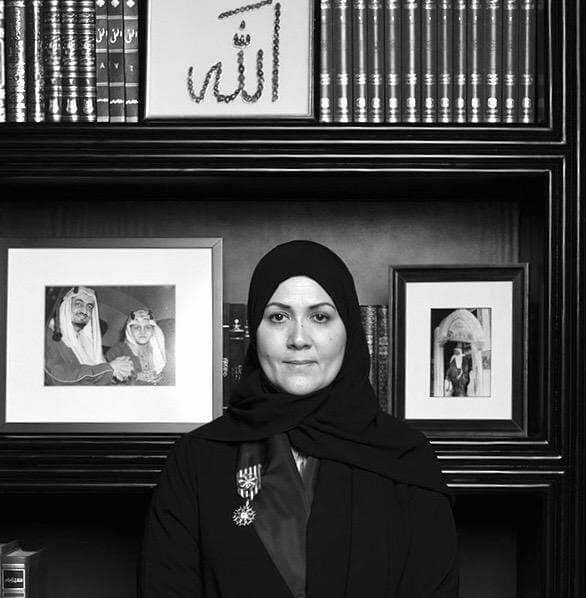
Every photograph is a pattern of light and shade. For me, my photography is a way to praise God’s glory in the universe.”
Reem Al-Faisal stands as a luminous figure in global photography. A princess by birth, and an artist by conviction. While her lineage connects her to Saudi Arabia’s royal heritage, it is her eye for light, shadow, and spiritual truth that has earned her a singular place in the canon of contemporary photography. "Art without spirituality is not art; it is decoration," she has famously said. This guiding belief flows through every frame she captures, turning the camera from a mechanical device into a vessel of quiet revelation.
Reem Al-Faisal’s Early Path to Photography
Born in Jeddah, Reem is the granddaughter of King Faisal of Saudi Arabia. Her early academic life began with studies in Arabic literature at King Abdulaziz University. But it was her decision to study at the renowned Spéos photography school in Paris that redirected her path from prose to photography. In Paris, she immersed herself in classical techniques, mastering the discipline of film photography and black-and-white processing, a medium she would return to time and again for its contemplative power.

"People can get distracted by color and forget about the image itself, but a black-and-white photograph forces people to focus. "
— Reem Al Faisal
Her debut exhibition in Jeddah in 1994 was not only a personal milestone, but also a national one: it marked the first public black-and-white photography show in Saudi Arabia. The work announced a fresh feminine voice in a medium then largely dominated by male perspectives.
Port of Jeddah: An Early Breakthrough
Between 1996 and 1999, Reem Al-Faisal’s "Port of Jeddah" series gained international attention. Exhibited in France, China, Egypt, and Saudi Arabia, the series explored the city’s maritime heritage with an intimacy that was both lyrical and documentary.
Through grainy silhouettes of dockworkers and the texture of aging ships, she conjured a quiet narrative of departure, longing, and return. The work was pioneering not just for its subject, but because it came from the eye of a Saudi woman documenting a traditionally male space. Her lens imbued the port’s rust and rhythm with a sense of metaphysical presence.


Pilgrimage and the Sacred Geometry of Devotion
Reem Al-Faisal would go on to become one of the first woman to document the sacred pilgrimage of Hajj. Her work in Makkah and Madinah captured more than architectural grandeur; it unveiled the choreography of faith. Pilgrims in motion, veils in wind, shadows cast by minarets, each image reflects not just a ritual, but an atmosphere of spiritual alignment.




Her 2025 exhibition "States of Light," held in Riyadh, explored these themes further. Through half-tones and subtle gradations, she created what one critic called “a muffled sound, an outspoken whisper.” The work invited viewers into a state of contemplative grace, where the visual became a gateway to the divine.

A Global Muslim Narrative
While rooted in Saudi culture, Reem Al-Faisal’s work reaches across continents and communities. Her albums American Muslim and Nation of Islam embody an inclusive vision. As the first Saudi female photographer to exhibit in China, Korea, Japan, and Palestine, her work has also been shown in Egypt, France, Germany, the Netherlands, Singapore, Spain, and the United States. Her photographs reside in permanent collections at the National Museum of Seoul and the Jordan National Gallery of Fine Arts.
Her lens focuses not on spectacle, but on the sacred within the mundane: a prayer mat in sunlight, a face in meditation, a market scene pulsing with rhythm and ritual. Each frame becomes an artifact of spiritual continuity.


Building Spaces for Image and Imagination
In 2008, Reem Al-Faisal founded The Empty Quarter Gallery in Dubai, the first gallery in the Gulf region dedicated exclusively to photography. A second branch opened in Jeddah in 2015. Though both locations have since closed permanently, The Empty Quarter remains a landmark in the history of regional visual culture.
She also launched Dar Al-Saaed, a digital and tech-oriented initiative aimed at bridging art and innovation. In every venture, Reem remains committed to photography not as commodity, but as cultural legacy.
Honored at Home and Abroad
Reem Al-Faisal's artistic achievements have been recognized globally, and her pioneering role has earned her several notable firsts:
- First woman photographer to document the entire Hajj
- First Arab photographer to exhibit in China
- First Saudi photographer to exhibit in Palestine
- First Saudi photographer to document China, Japan, and Korea
- First Saudi photographer to create an extensive body of work on the Muslim community in America
In 2017, she was awarded the French Médaille de l’Ordre des Arts et des Lettres, followed by the National Order of the Legion of Honour, among France’s highest recognitions for cultural contributions. Despite the accolades, her approach remains introspective and grounded. Reem Al-Faisal creates not for applause, but for awakening.
A Personal Journey Through Saudi Arabia in Color
Although Reem Al-Faisal is best known for her black-and-white photography, she recently began working in color. During the COVID-19 pandemic, she traveled across Saudi Arabia with a medium format digital camera. As she explored the landscapes, buildings, and people of her country, she started to see them differently. Not just in light and shadow, but in layers of color and feeling.
This new project surprised even her. After many years of focusing only on black-and-white images, she felt color was the only way to show the spirit of Saudi Arabia. She describes this journey as a "love poem" to her homeland. The photographs are like pages from a personal journal, filled with cultural memory and emotional depth.
NFTs and the Digital Evolution of Photography
Reem Al-Faisal has embraced the rise of NFTs as a natural extension of her practice, releasing a digital collection of her historic Hajj photographs. She views NFTs not as a trend but as "digital paper", a new way to present and preserve art, using blockchain to maintain provenance and foster deeper connections with collectors.
Legacy and Vision
In a visual era defined by speed and saturation, Reem Al-Faisal’s work is a call to stillness. Her photography slows time, inviting us to see not just what is present, but what is eternal. In her world, every shadow is sacred, every frame a form of prayer.
More than an artist, she is a visual theologian of the Muslim world, documenting both its vastness and its interiority. Her legacy is one of vision, faith, and enduring cultural dialogue.
Follow her journey on X, Instagram, or visit reem-alfaisal.com.
Inspired by Reem Al-Faisal?
Discover more artist stories at KSA Art.

